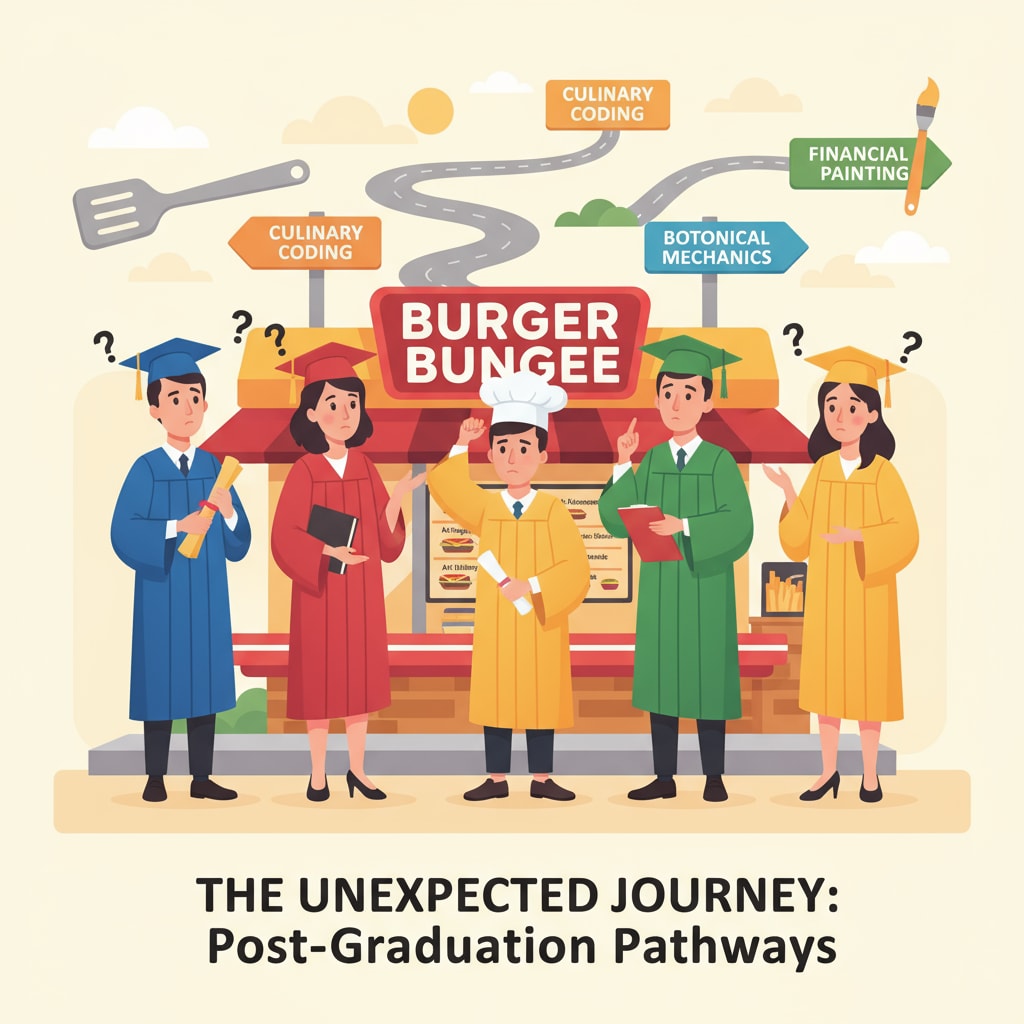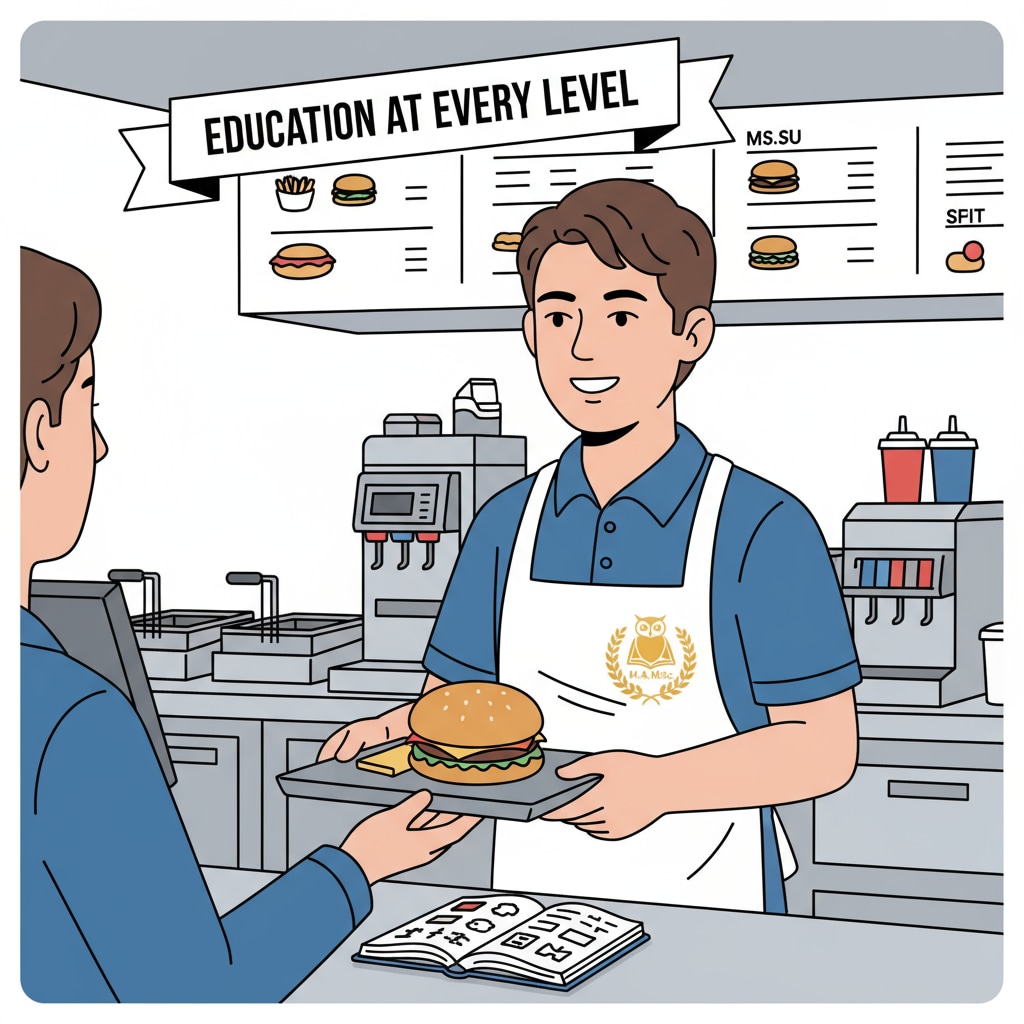The relationship between university degrees, employment, and the fast food industry has undergone a significant transformation in 2025. As we approach this year, the value of a university degree in the job market is being questioned like never before. The once-clear path from graduation to a well-paying, professional job has become murky, with many highly educated individuals finding themselves in unexpected career paths, including positions in the fast food industry.

The Changing Landscape of University Degrees and Employment
In the past, obtaining a university degree was almost a guarantee of a successful career. It opened doors to various industries, offering opportunities for growth and financial stability. However, in 2025, the job market has become highly competitive. The supply of university graduates has far exceeded the demand for traditional professional positions. For example, according to Bureau of Labor Statistics data, while the number of students graduating with degrees in liberal arts has increased significantly, the number of available jobs in related fields has not kept pace.
The Influx of High – Educated in the Fast Food Industry
One of the most notable trends is the increasing number of high – educated individuals taking up positions in the fast food industry. Many with master’s degrees are now working as fast food managers. This is a far cry from the expectations associated with such advanced degrees. There are several reasons for this. Firstly, the fast food industry has been growing steadily, creating a large number of job opportunities. It offers relatively stable employment, even in a volatile job market. Secondly, some graduates may find that the skills they acquired during their studies, such as communication and management skills, are transferable to fast food management positions.

However, this also raises concerns about the underutilization of educational qualifications.
The situation of high – educated individuals in the fast food industry forces us to reflect on the return on education investment. Parents and students invest a significant amount of time and money in obtaining a university degree, expecting a certain level of return in terms of career and income. But when a master’s degree holder ends up in a fast food management role, it makes one wonder if the investment was worth it. In addition, it also highlights the need for better career planning in the K12 stage. Students should be exposed to a wider range of career options and gain a more realistic understanding of the job market from an early age. This way, they can make more informed decisions about their educational paths.
Readability guidance: As we’ve seen, the relationship between university degrees, employment, and the fast food industry is complex. By understanding the changing job market and the reasons behind the career choices of graduates, we can better prepare future generations for a more uncertain employment landscape. The examples and trends discussed here show that education needs to adapt to the evolving needs of the job market, and students need to be more strategic in their educational and career decisions.


